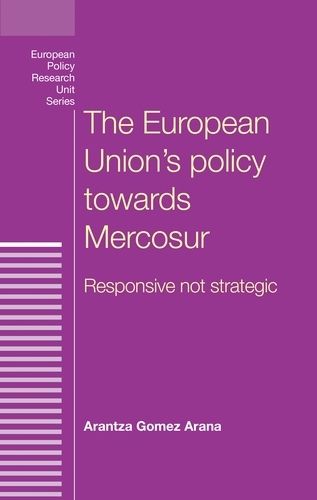Readings Newsletter
Become a Readings Member to make your shopping experience even easier.
Sign in or sign up for free!
You’re not far away from qualifying for FREE standard shipping within Australia
You’ve qualified for FREE standard shipping within Australia
The cart is loading…






This book provides a distinctive and empirically rich account of the European Union’s relationship with the Common Market of the South (Mercosur). It seeks to examine the motivations that determine the EU’s policy towards Mercosur; the most important relationship the EU has with another regional economic integration organization. In order to investigate these motivations (or lack thereof), this study examines the contribution of the main policy- and decision-makers, the European Commission and the Council of Ministers, as well as the different contributions of the two institutions. It analyses the development of EU policy towards Mercosur in relation to three key stages. Arana argues that the dominant explanations in the literature fail to adequately explain the EU’s policy, in particular, these accounts tend to infer the EU’s motives from its activity. Rather than the EU pursuing a strategy, as implied by most of the existing literature, the EU was largely responsive, which explains why the relationship is much less developed than the EU’s relations with other parts of the world. – .
$9.00 standard shipping within Australia
FREE standard shipping within Australia for orders over $100.00
Express & International shipping calculated at checkout
This book provides a distinctive and empirically rich account of the European Union’s relationship with the Common Market of the South (Mercosur). It seeks to examine the motivations that determine the EU’s policy towards Mercosur; the most important relationship the EU has with another regional economic integration organization. In order to investigate these motivations (or lack thereof), this study examines the contribution of the main policy- and decision-makers, the European Commission and the Council of Ministers, as well as the different contributions of the two institutions. It analyses the development of EU policy towards Mercosur in relation to three key stages. Arana argues that the dominant explanations in the literature fail to adequately explain the EU’s policy, in particular, these accounts tend to infer the EU’s motives from its activity. Rather than the EU pursuing a strategy, as implied by most of the existing literature, the EU was largely responsive, which explains why the relationship is much less developed than the EU’s relations with other parts of the world. – .